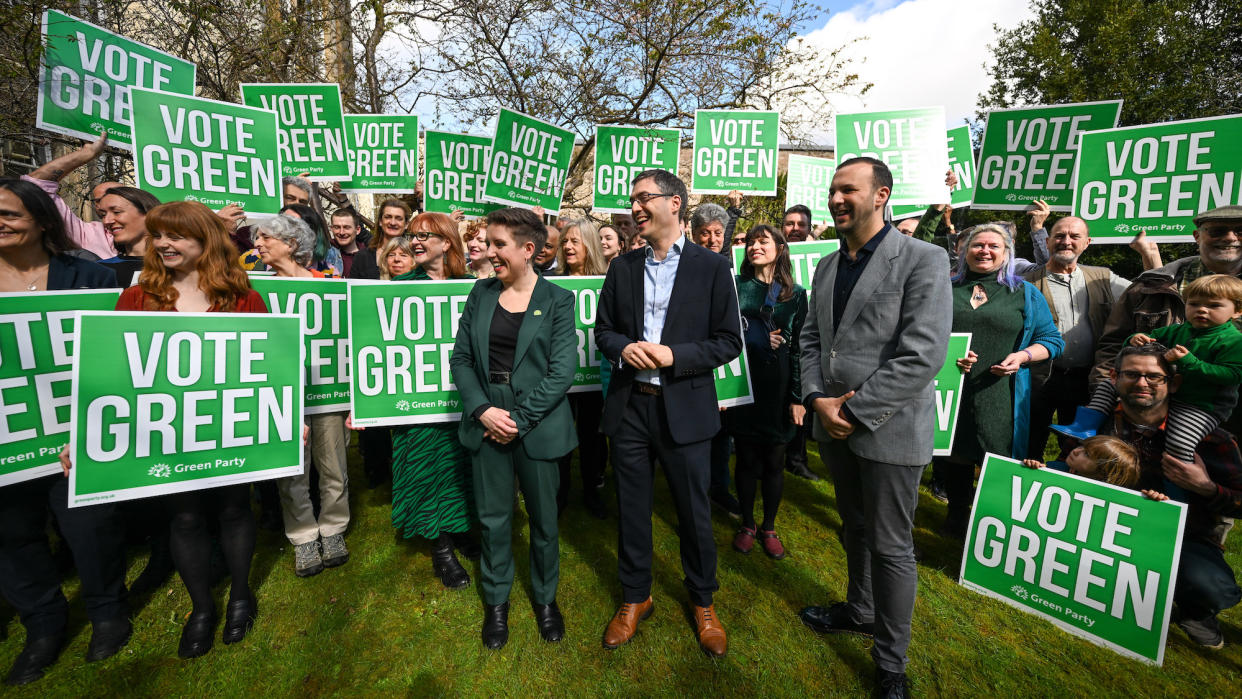What does the Green Party stand for?

If the results of May's local elections are anything to go by, the Green Party is on the up. For the fifth time in local elections, the party increased its share of council seats overall and it now holds significant influence in some areas.
That's left some in the Labour Party concerned about the potential of a "Green surge" and the "threat of losing voters on the left" in this year's general election, said Richard Vaughan at the i news site.
Although it has regularly attracted a significant number of votes nationwide, it has struggled to succeed in the first-past-the-post system that is "not kind to smaller parties", said Ben Wright at The Telegraph. But now, a new strategy of deploying different types of candidates to appeal to voters and address specific issues in local areas appears to be paying off.
However, it "raises questions about what the party stands for", said Wright, and whether the party is being "hijacked by those for whom a far-Left agenda is more important than the environmental fate of the planet".
How well is the Green Party performing?
The Green Party has "long struggled to make itself heard", but its recent results suggest a change in fortunes, said The Economist. It gained 74 council seats (to take its tally to 812 across England and Wales) in the 2 May elections and, having taken full control of its first council in mid-Suffolk last year, "fell just short of doing the same in Bristol" this year.
In terms of national vote, the party is "polling at a lofty 6% share" and, while it will struggle to improve on its single seat in parliament, it could have an "outsize effect on disaffected voters on the left" that allows it to "wield real influence" for the first time.
What is it campaigning on?
It is the national campaigning that will "raise tougher questions about the party’s coherence". The Green Party is in some urban areas winning voters with a focus on environmental and social issues including trans rights as well as taking a tougher position against the war in Gaza. Meanwhile, it is "appealing to disgruntled Tories" with an "earthy blend of local issues and eco-nimbyism".
Its flagship policy has always been the environment and though that will remain true, it is finding greater success in addressing localised issues to attract voters. It's a tactic that can be "seen in two lights", said Wright. It confirms that it is "no longer a single-issue party", but raises questions over whether it undermines the importance of the environmental policies.
Mothin Ali, an Islamic teacher from Leeds, and former Labour supporter, was caught up in a media storm and heavily criticised after saying his election win for the Greens this month was a "win for the people of Gaza". Some Greens have expressed concern that "Jeremy Corbyn fans have been migrating to the Greens and changing their culture", said The Times.
Likewise, in rural Conservative areas there are concerns that Greens are finding "reasons for opposing green energy", said The Economist. Farmer and newly elected councillor for mid-Suffolk Andrew Mellen has "opposed solar farms" and focused more on "litter, bin collections, housing and sound finances".
Why is Labour so concerned?
The Labour Party is worried about "the rise of support" for the Greens and being "outflanked from the left", said Vaughan. So much so, it is collating evidence of the Greens blocking environmental projects, including "plans for solar farms and major wind developments", despite its lofty renewable energy commitments.
While most of its messaging in the run-up to the general election has been focused on attracting disillusioned Tory voters, Labour will "tweak" the messaging of its campaigning in areas of high Green support where they could see left-leaning voters abandon them.
The Tories too might need to "wake up and sniff the brackish air", said Miranda Green in the Financial Times, as they face the real prospect of "protest votes" for the Greens in rural areas where campaigning focuses on a "loss of green space and restoring nature".

